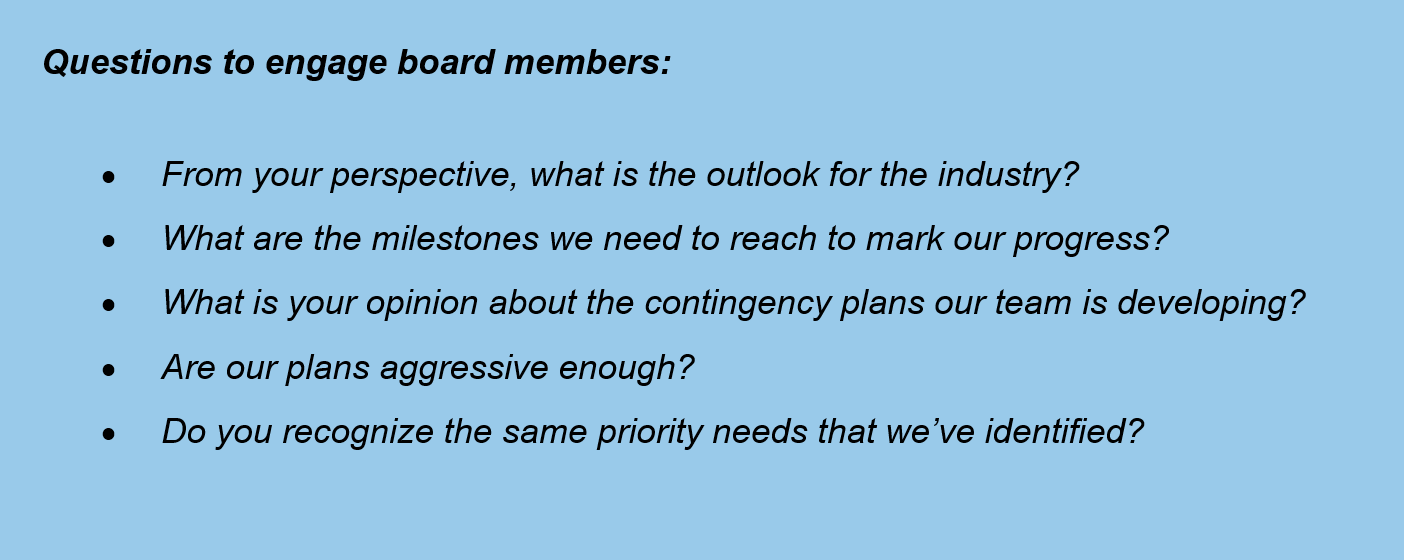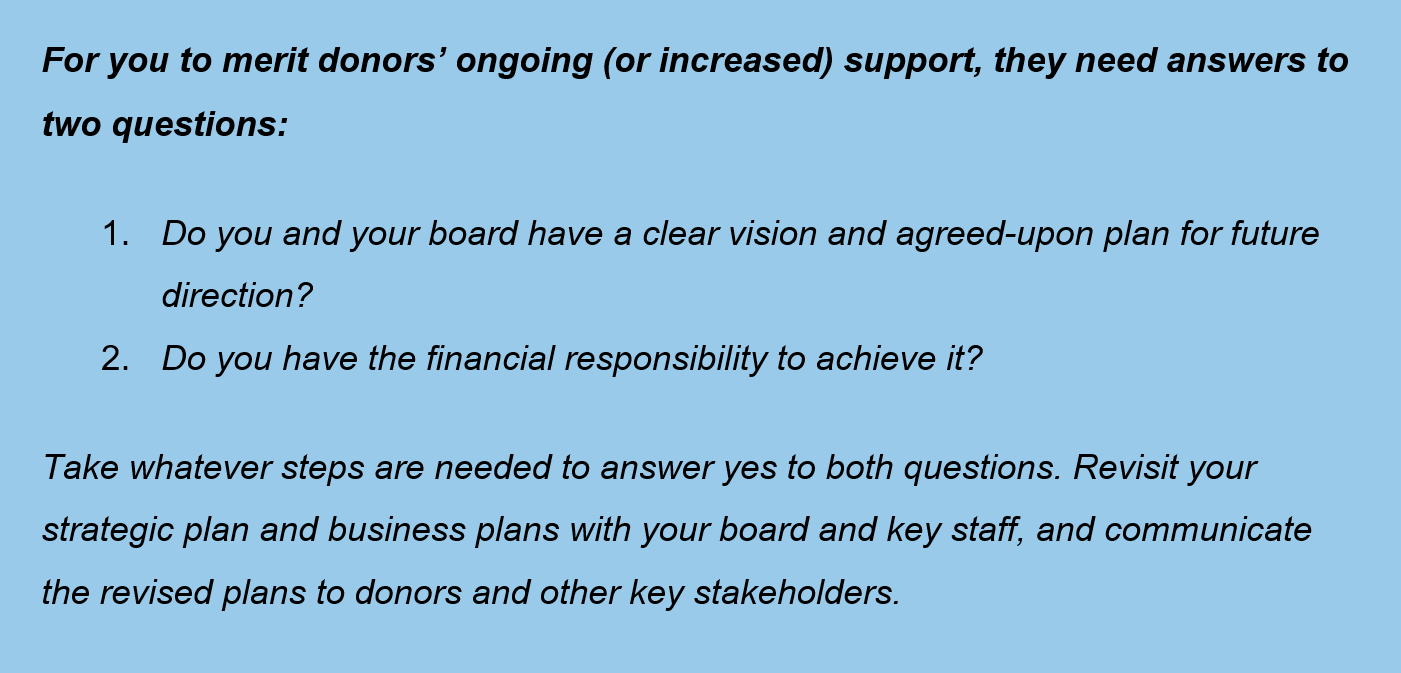
The 2020 COVID-19 Crisis and Your Communications Strategy: A Letter to CEOs

Jill Allread, APR
CEO
Jill Allread leads PCI and provides executive counsels to a wide variety of organizations and individuals to enhance their brands, strategies and reputations.
An agency owner for more than 20 years, Jill also draws upon her experience as a daily newspaper reporter and editor when helping clients more effectively tell their story through strategic communications and planning.
A nationally recognized crisis management counselor in the areas of healthcare, nonprofit, conservation, business and associations, she also advises clients in public affairs strategies, building on her past experience as Director of Public Affairs and Public Relations for Chicago Zoological Society.
A few weeks ago, coronavirus seemed like an inconvenience at most. Now, with more than half of American jobs in every category suddenly at risk because of the financial consequences of the coronavirus crisis, the future of your own organization may seem imperiled. Lives are upended, program revenues are halted, and donors and other supporters themselves face uncertainty.
You need no reminder of the many factors you cannot control. Many nonprofits will need to reduce staff; others may close and not reopen. It is vital, even in these early days of this crisis, to envision what you want your organization to be when we eventually emerge from imminent threat of coronavirus and finally have a clearer account of lives and livelihoods forever changed.
Be reassured that even the most catastrophic crisis can be an opportunity to showcase inspired leadership. Now is the time to step forward with reason and optimism to prepare your organization to emerge from this crisis better than before.
Where to start?
Your Employees
To measure organizational morale, employees are often asked: Does anybody at your organization care about you as a human being?
Employees need to trust that their employer will communicate with them honestly, consistently and compassionately in a crisis. If you haven’t already, plan to share timely, frequent communications with your employees—keep up a steady drumbeat of accurate updates about what matters most to your employees, invite them to suggest innovative ways to keep reaching your organization’s most important audiences and attracting the resources you need, and take time to show empathy for the unprecedented difficulties this crisis may be causing in employees’ lives.
The compassion you show your employees now can shape their impression of your organization and you as its leader for years to come.
Your Board
Some CEOs see their boards as a necessary evil to be held at arm’s length. On the contrary, the better you communicate your needs to board members, the more likely they are to step forward to help you through their work, wisdom and wealth.
Reach out right now to your trustees. Share stories with them about what you are doing, the personal sacrifices employees are making and the extra steps you are already taking to keep your organization upright. Let board members know you value their insights, ideally in a personal call one-on-one—there is nothing more flattering than being asked for advice. You don’t have all the answers, and neither does your board. Directly engaging them in planning for the coming weeks and months means shared ownership of both the plans and results.

Your Donors
Right now, donors are being inundated by appeals for support. With uncertain market futures highlighting the relative stability of contributed revenue, competition for donors is fiercer than ever.
This is not the time to push for direct support. You will soon. For now, focus only on making it clear how much you value your relationship with donors. Let them know the impact they have had on your organization to date. If they contributed program support in the past, let them know the status of those programs today. If key programs are paused, let them know why; they don’t only want good news, they want honest news. If they contributed to your endowment funds, let them know how income from those invested funds is providing essential support to stabilize your operations during these rocky times. If someone deceased had remembered your organization with a planned gift, reach out to their surviving loved ones to let them know the difference the legacy gift continues to make.

Your cancellation or postponement of your annual gala, lectures, spring luncheons and other group fundraising events is no reason to stop communicating with your donors. If they already have “saved the dates,” honor those times by creating virtual events to share your stories. Livestream or re-purpose video clips across digital channels.
If your organization has cancelled children’s programs, immediately develop resources such as pages or PDFs on your website that parents can use to guide at-home activities for their children while schools are closed. In those materials, again recognize the donors who made those programs possible.
The Bottom Line
While your facilities may be closed, your public programs cancelled and your staff dispersed, the mission of your organization is still unwavering. Take care now to develop strategic communications to keep your employees, your board and your supporters engaged—and remind them of the vital role they play, the difference they have made, and the impact they can continue to make through your organization and with your confident leadership.



